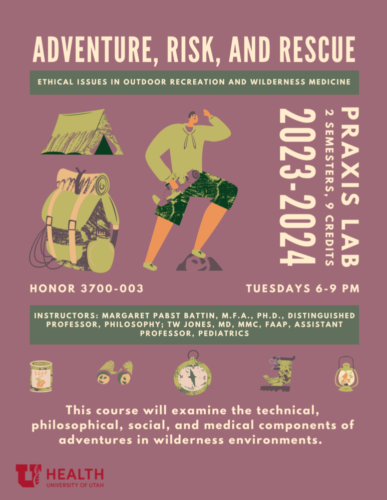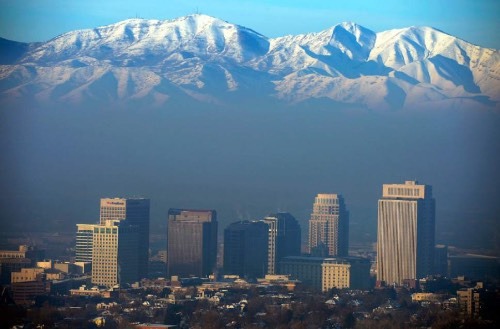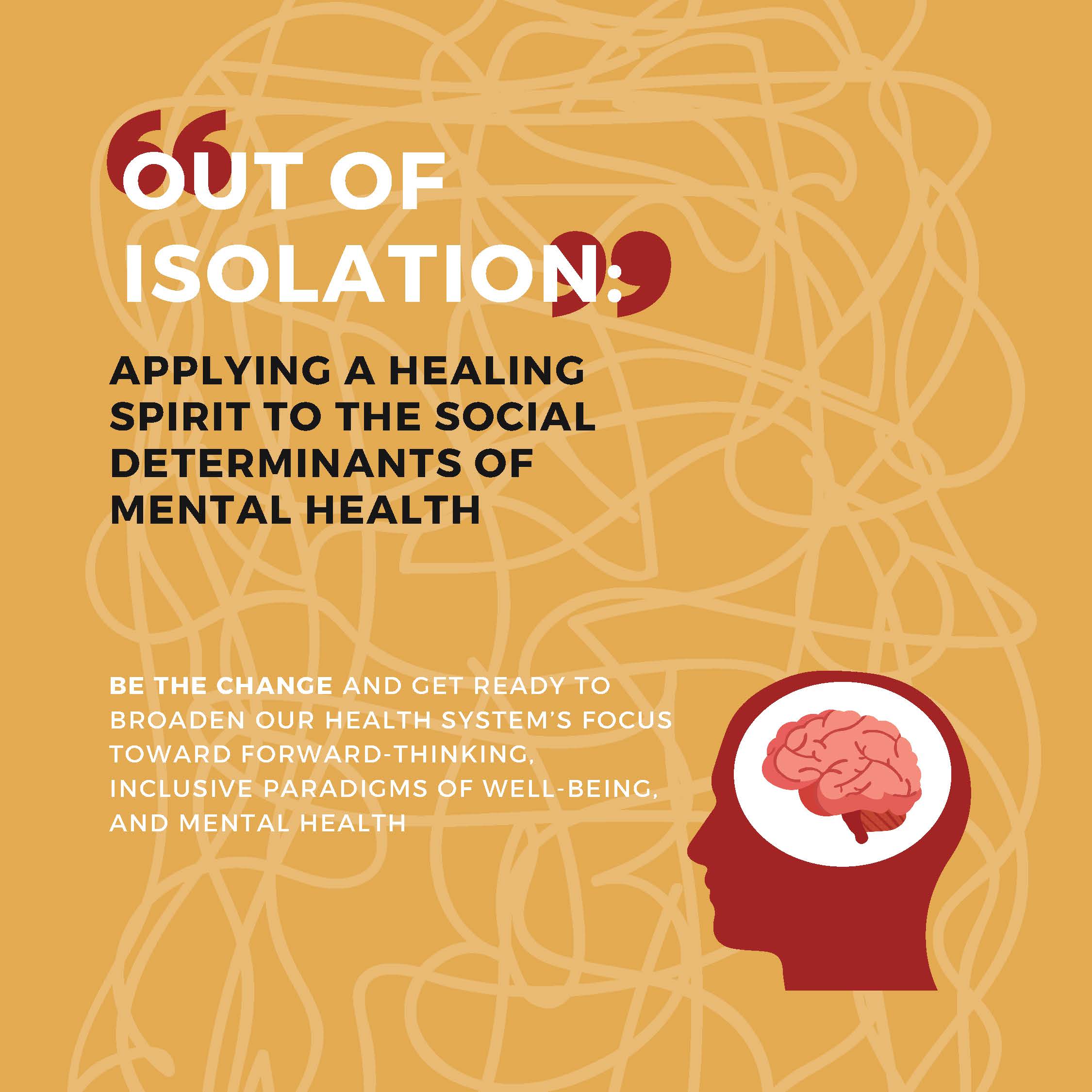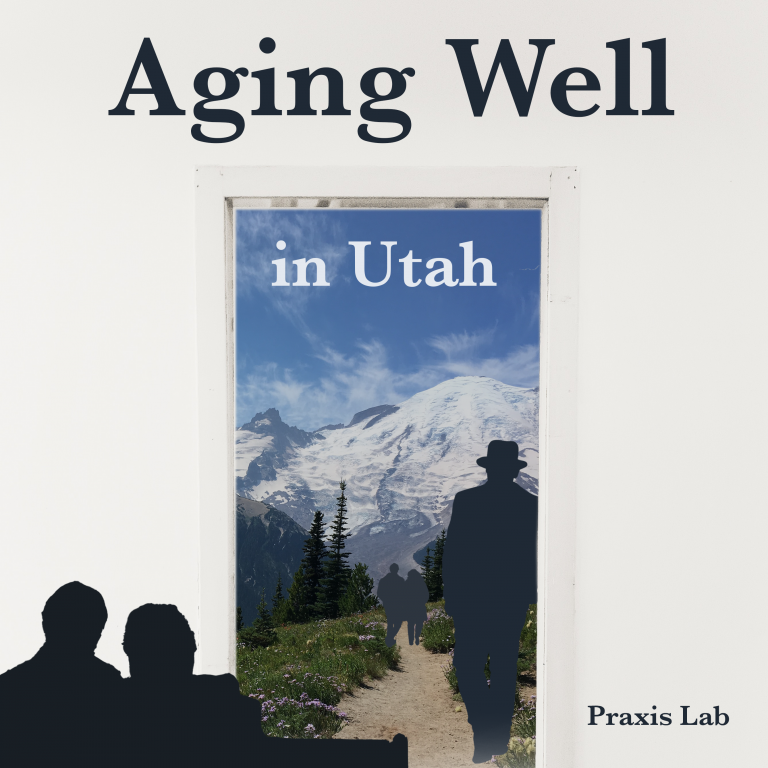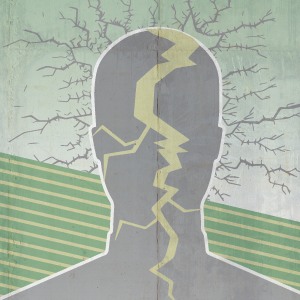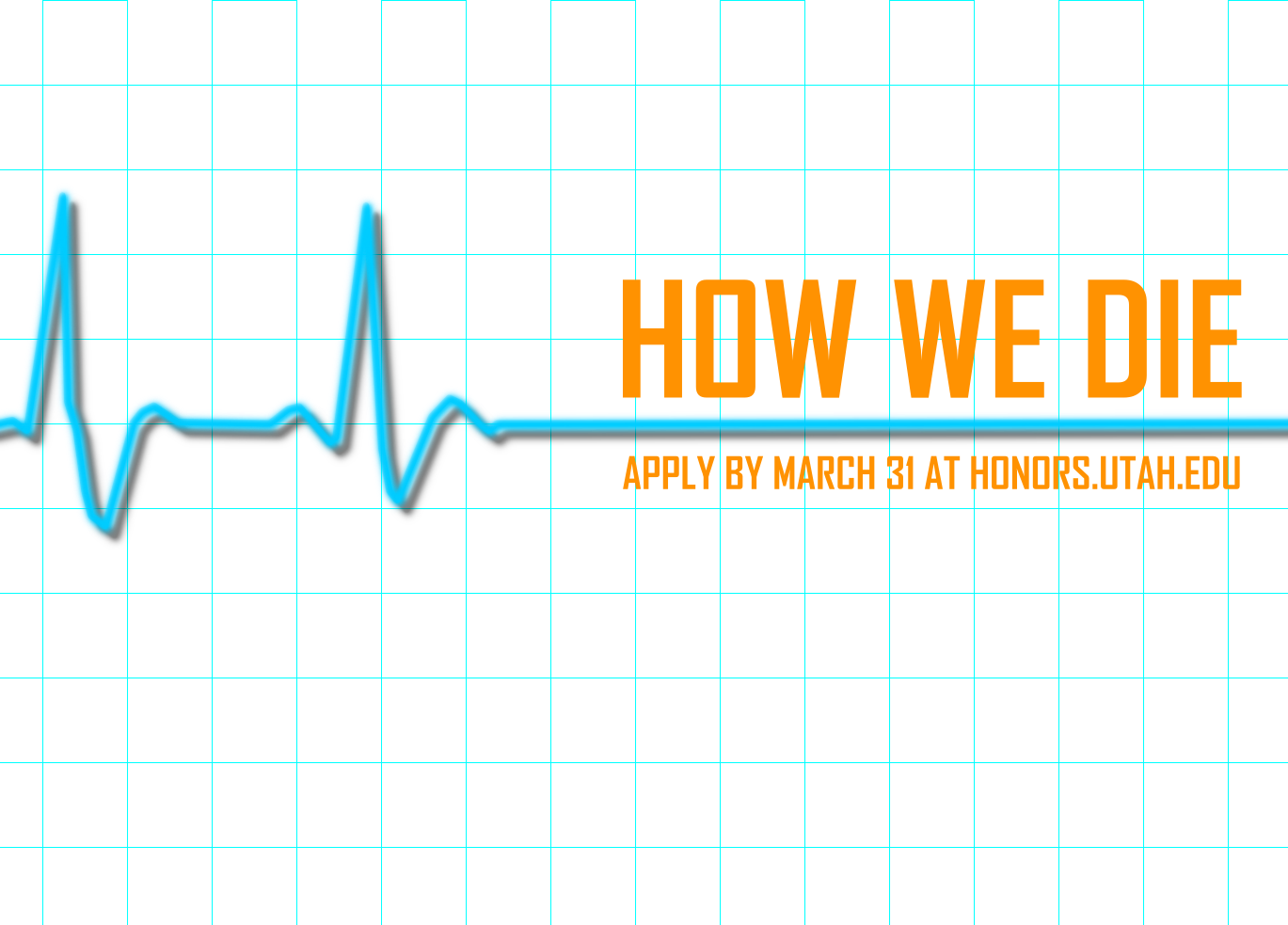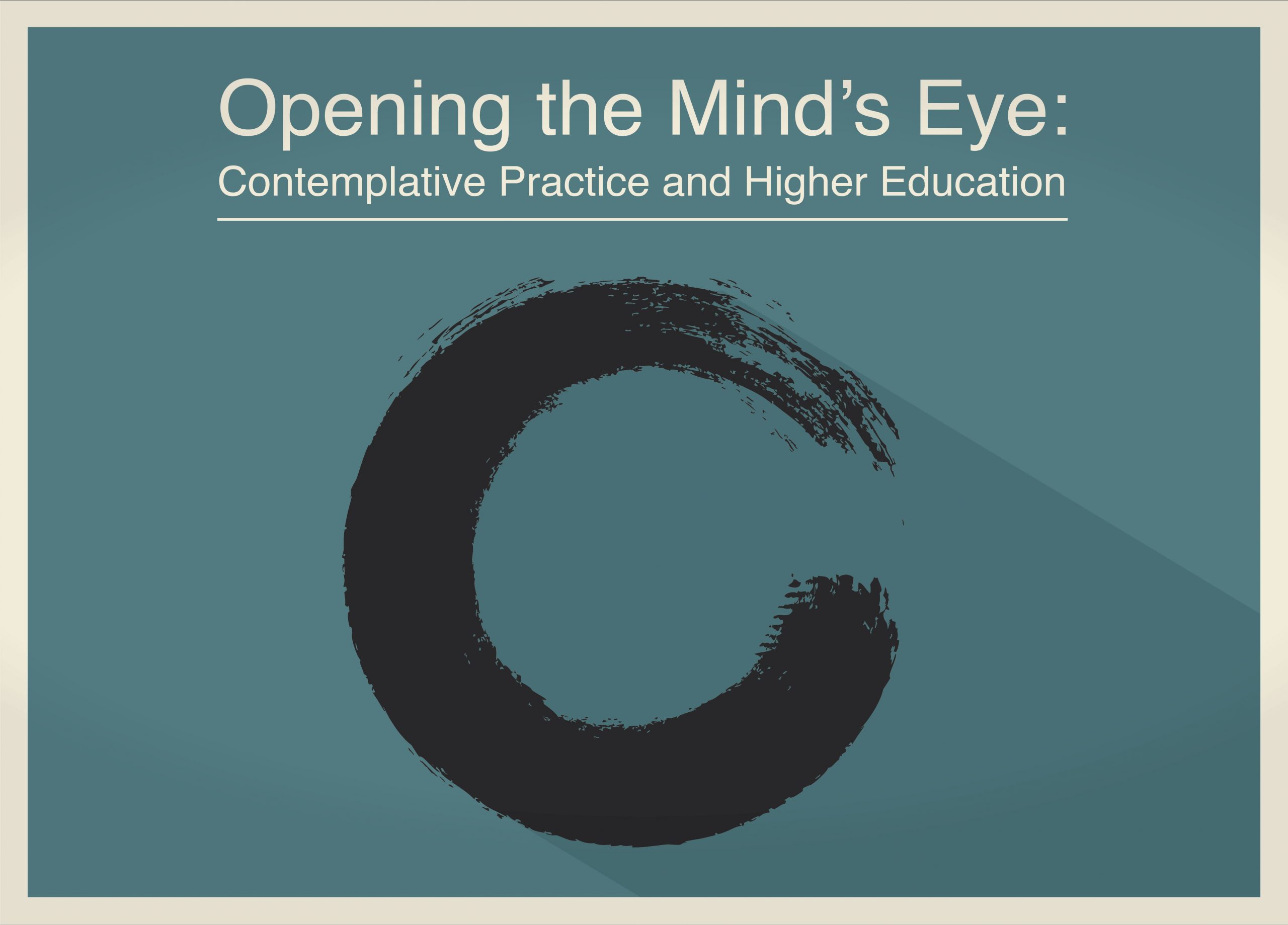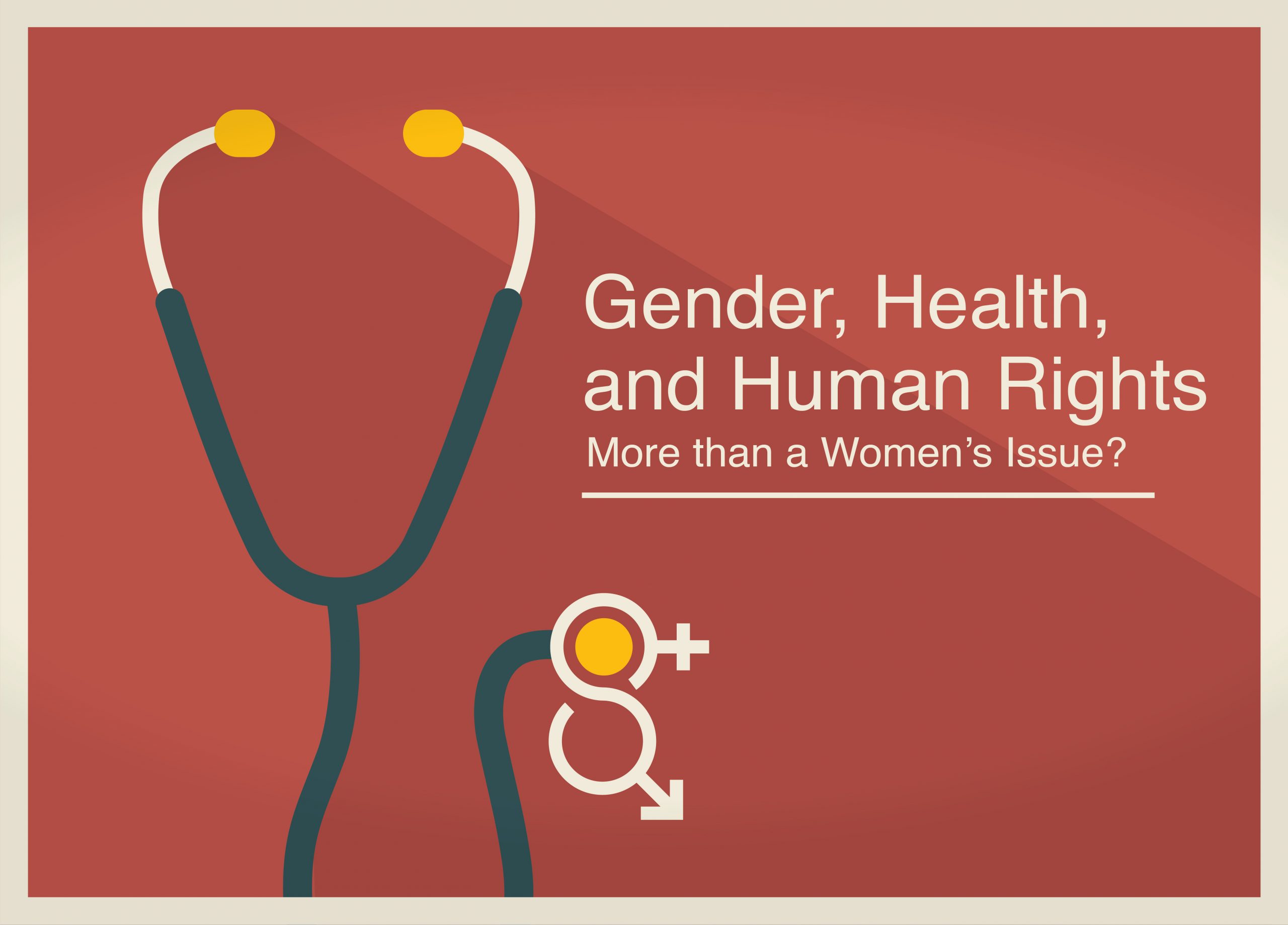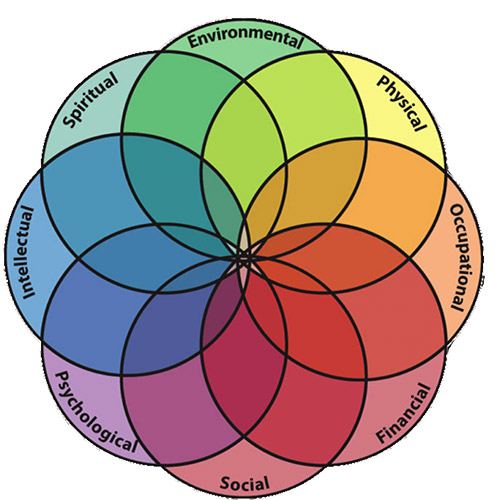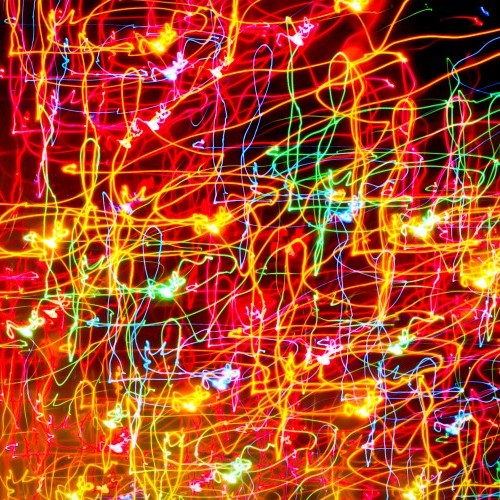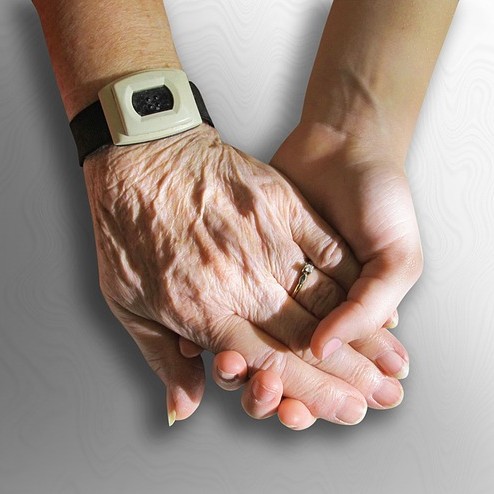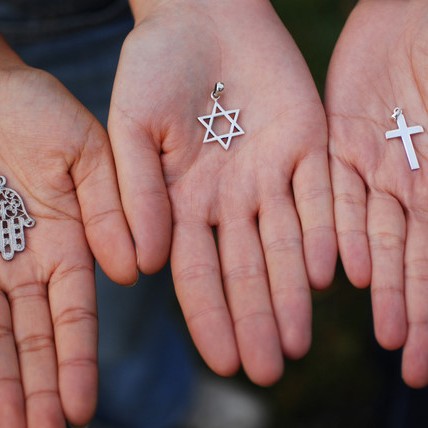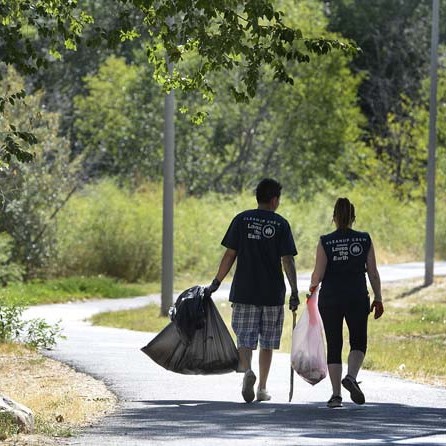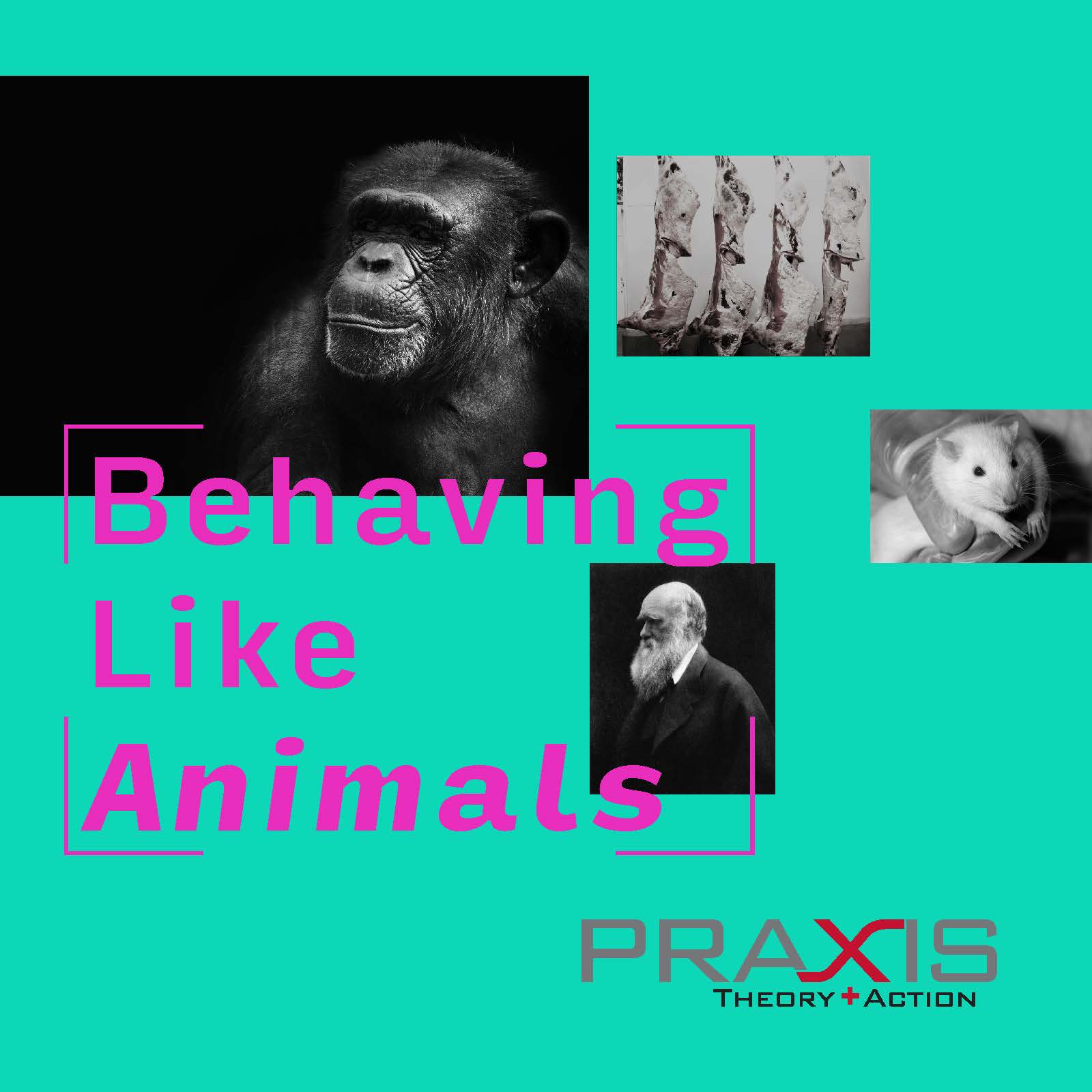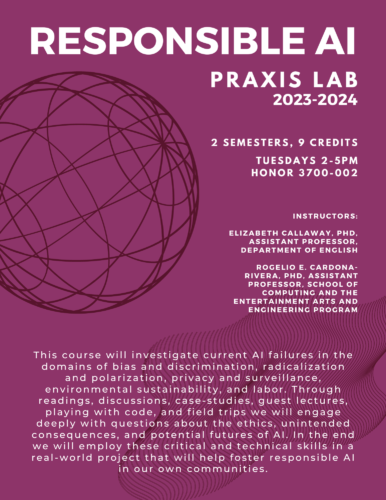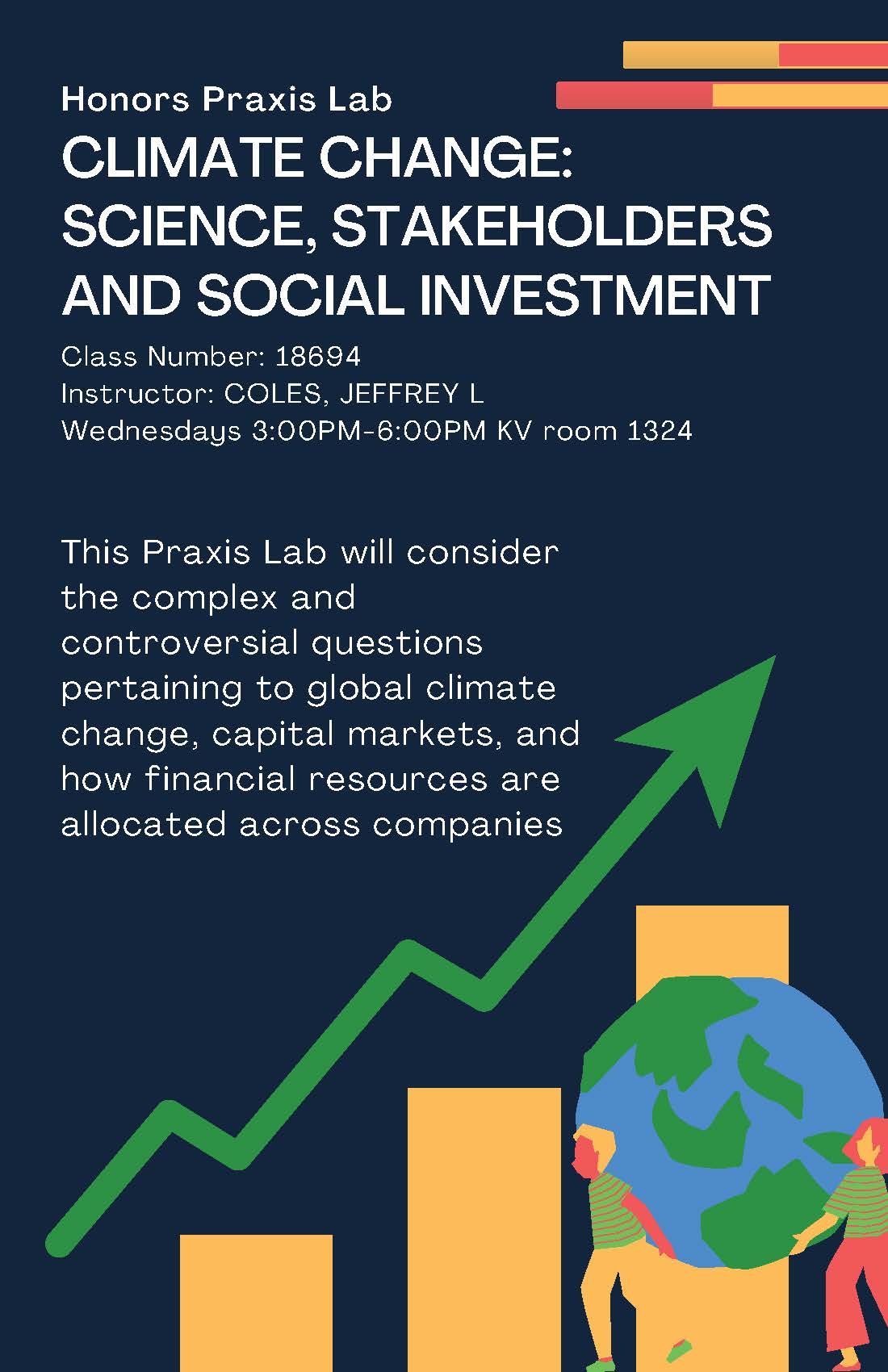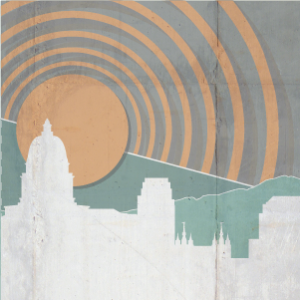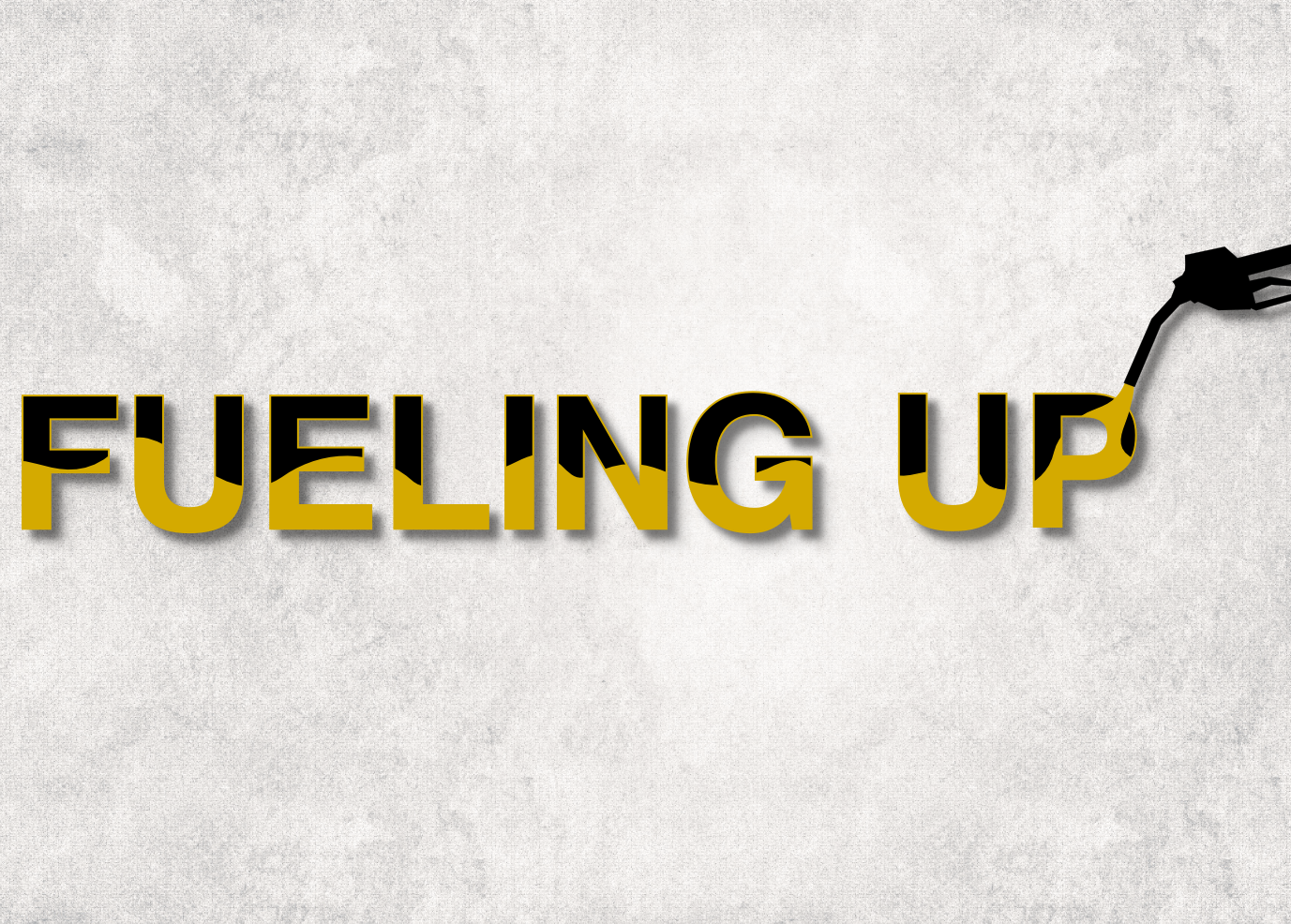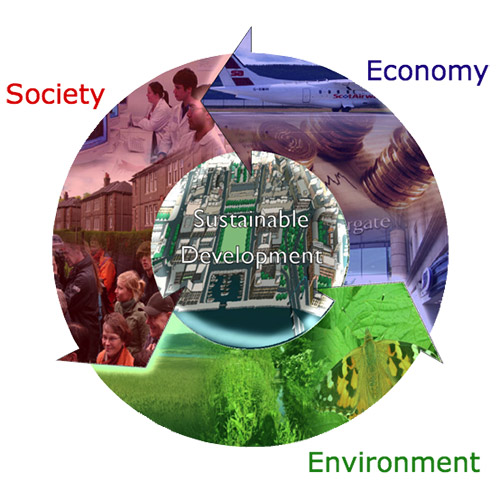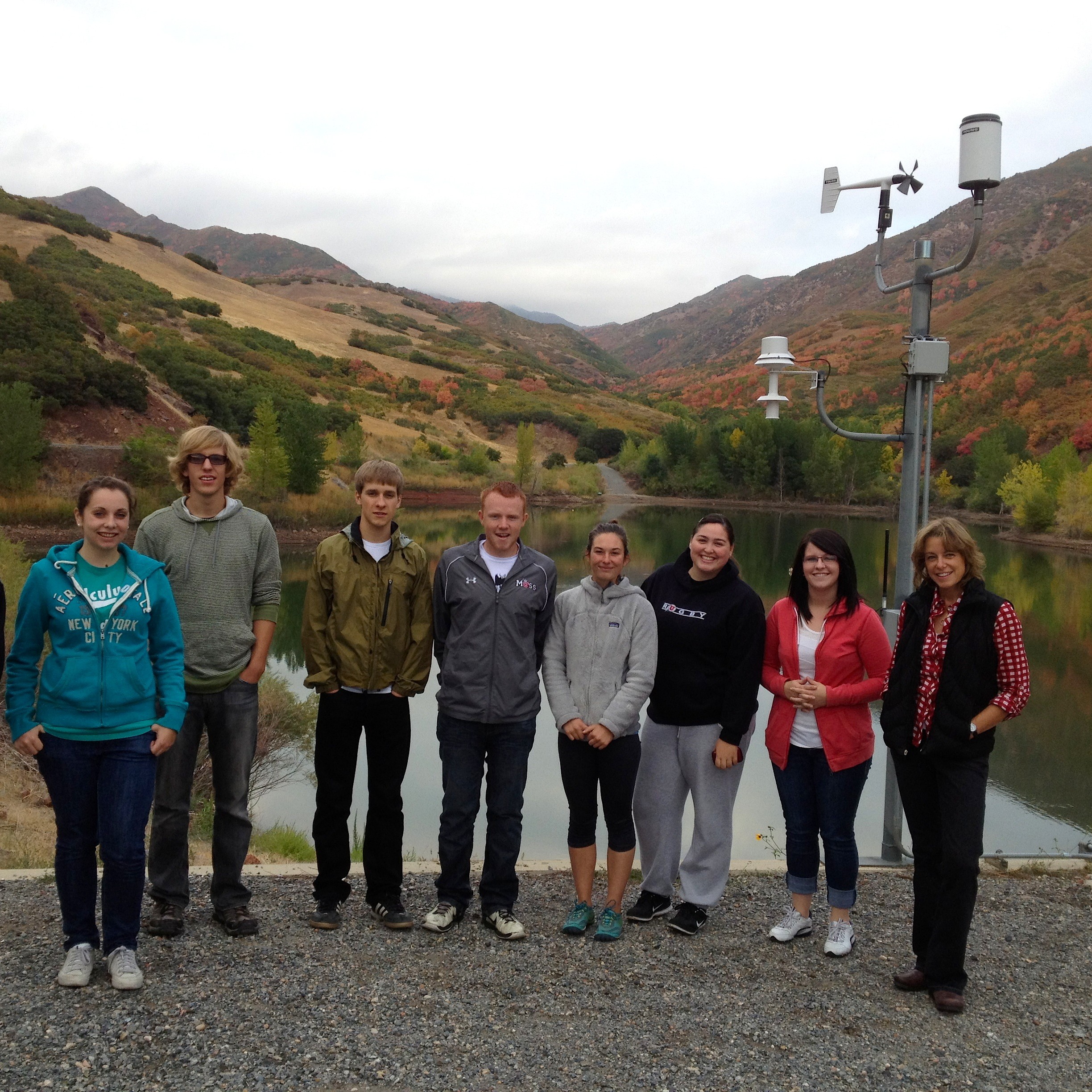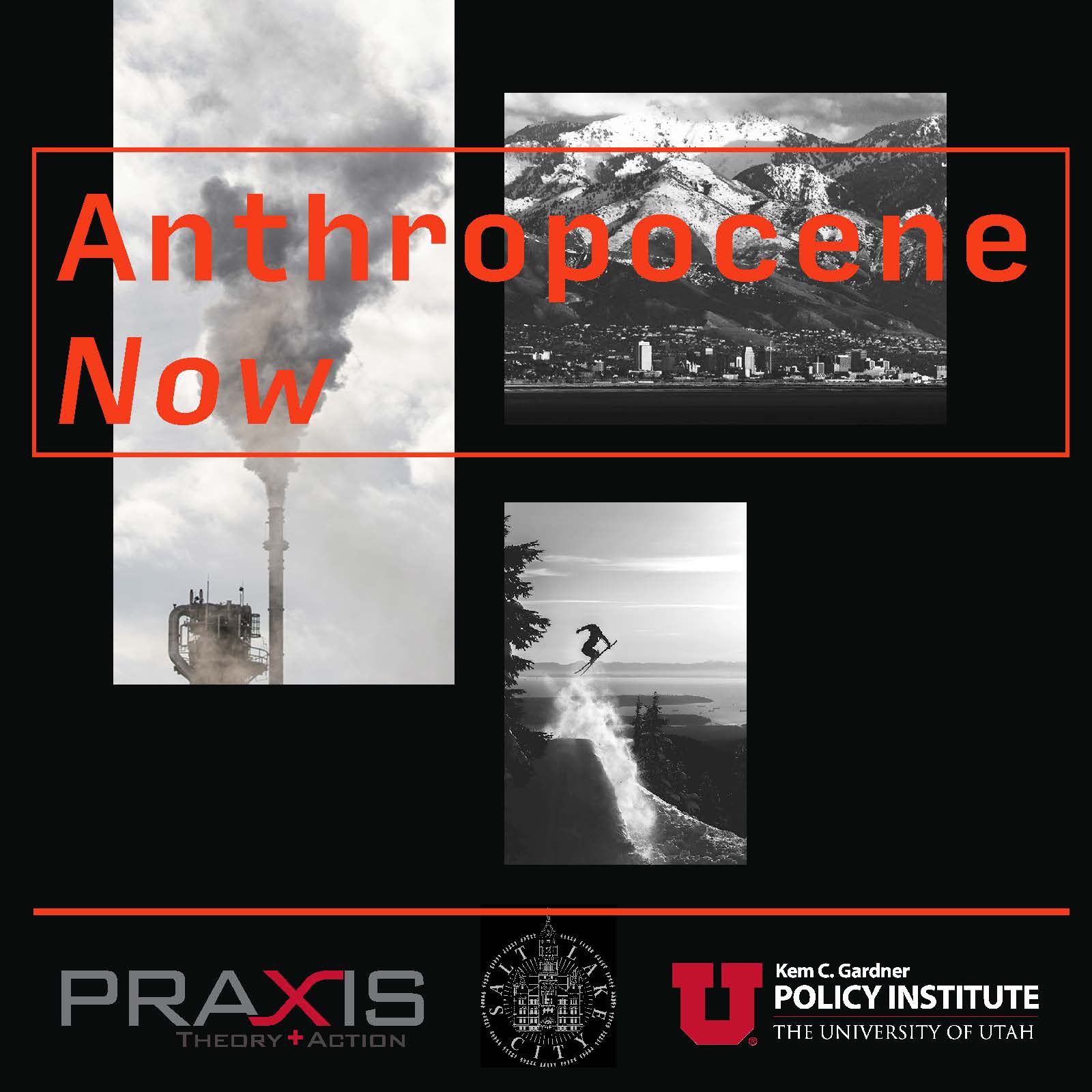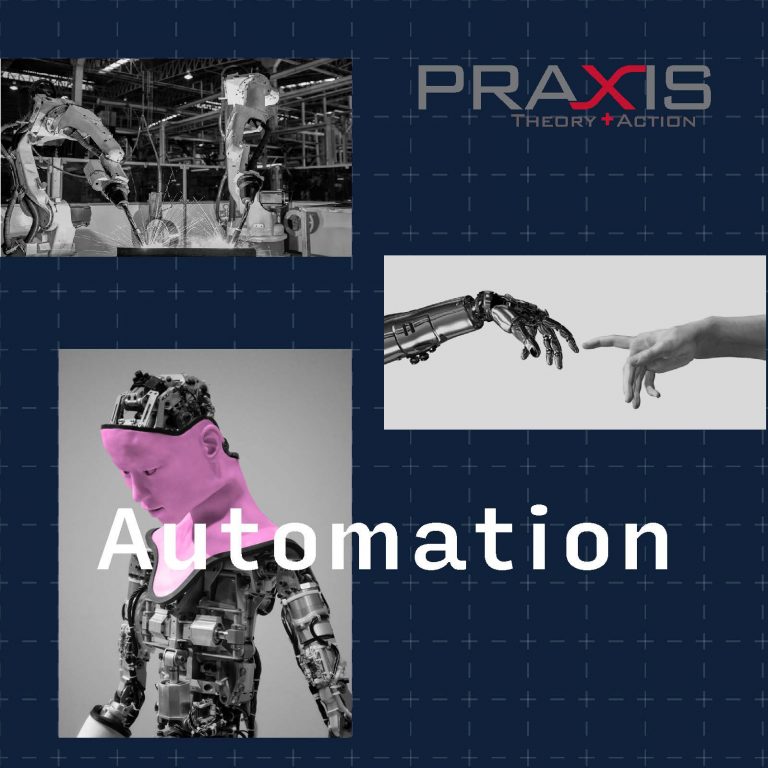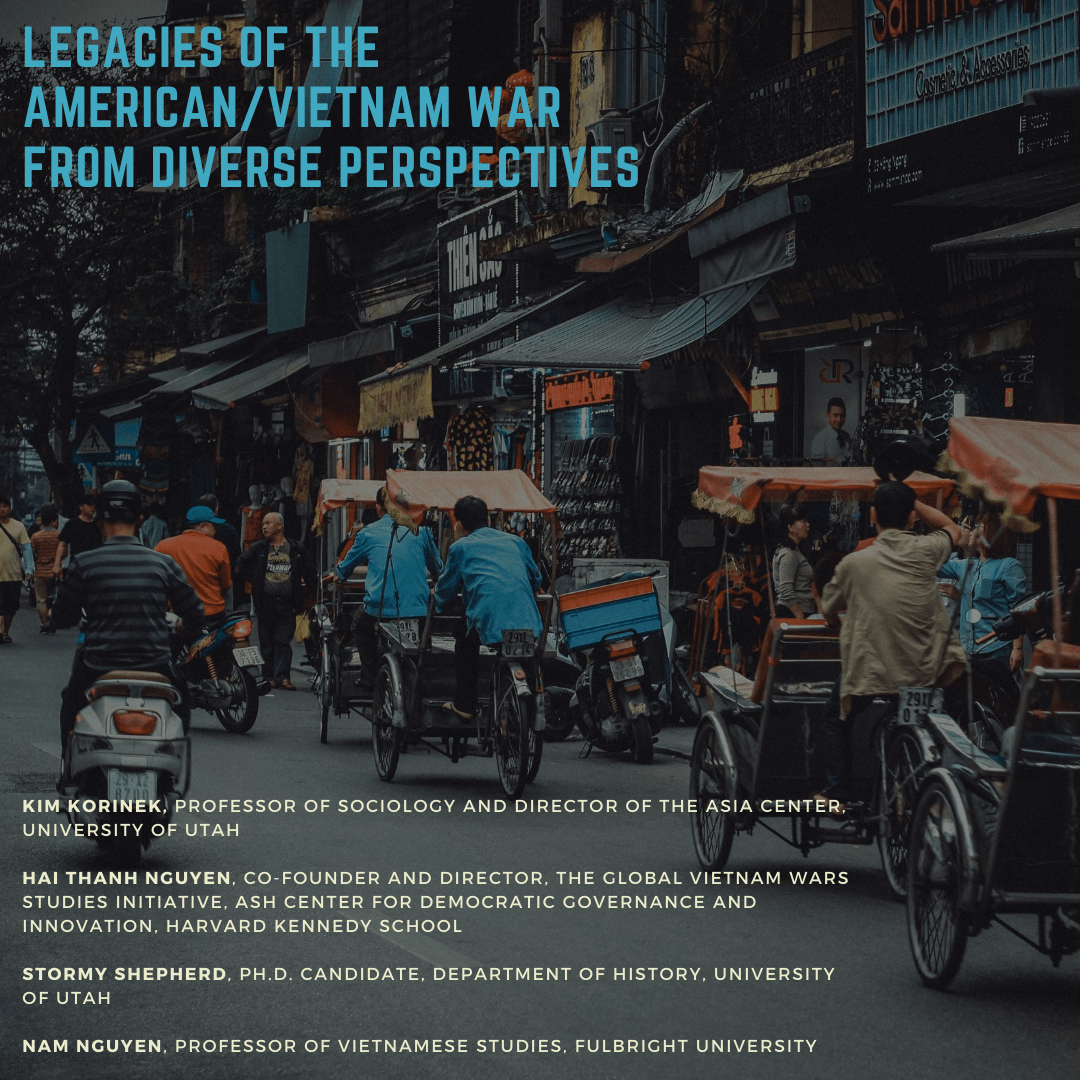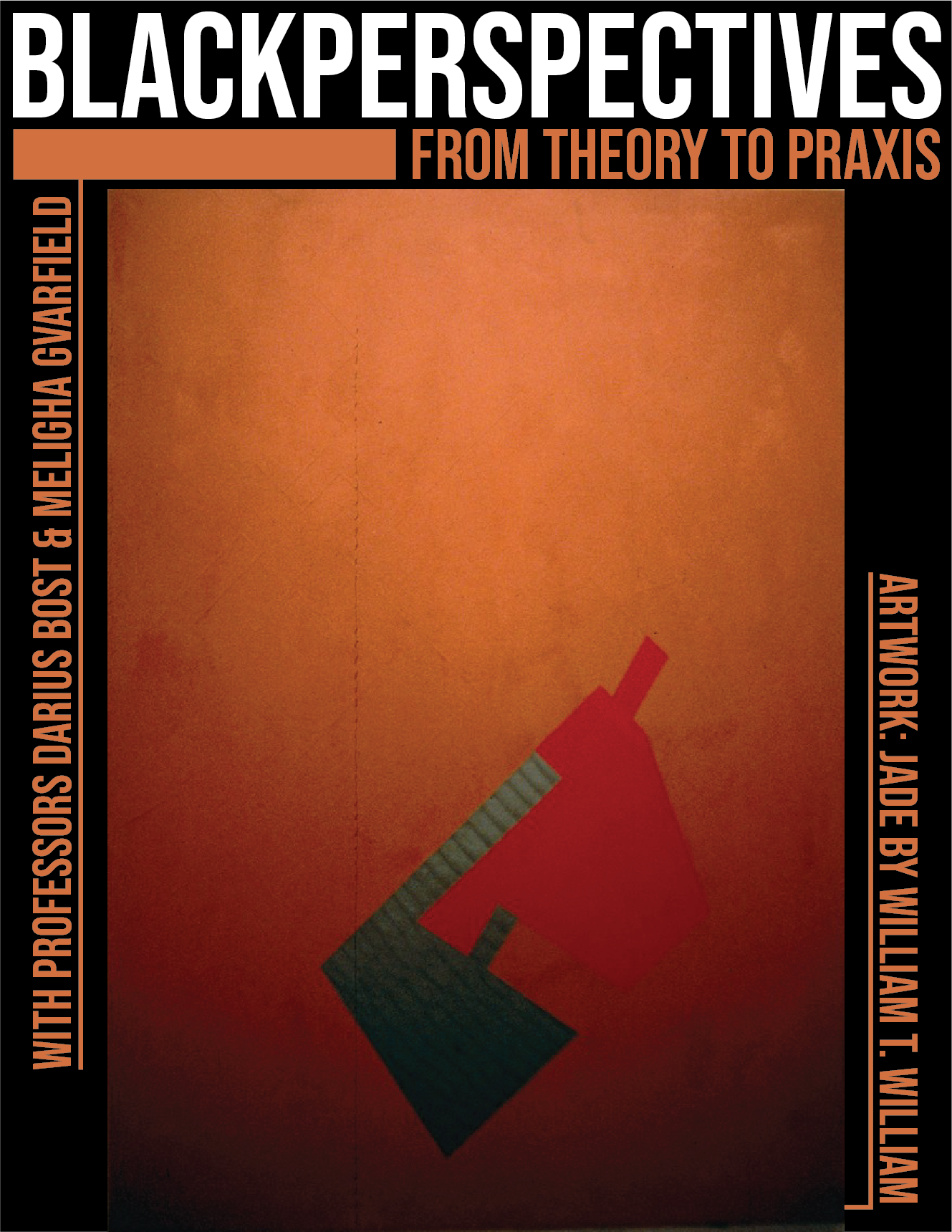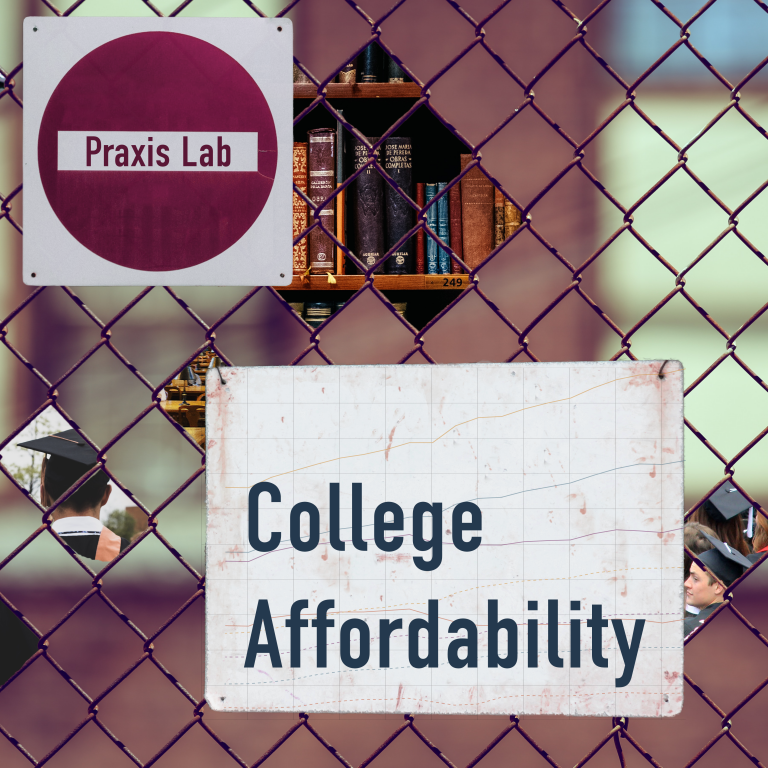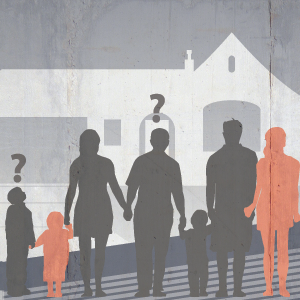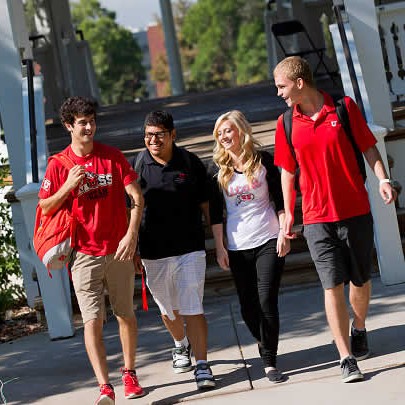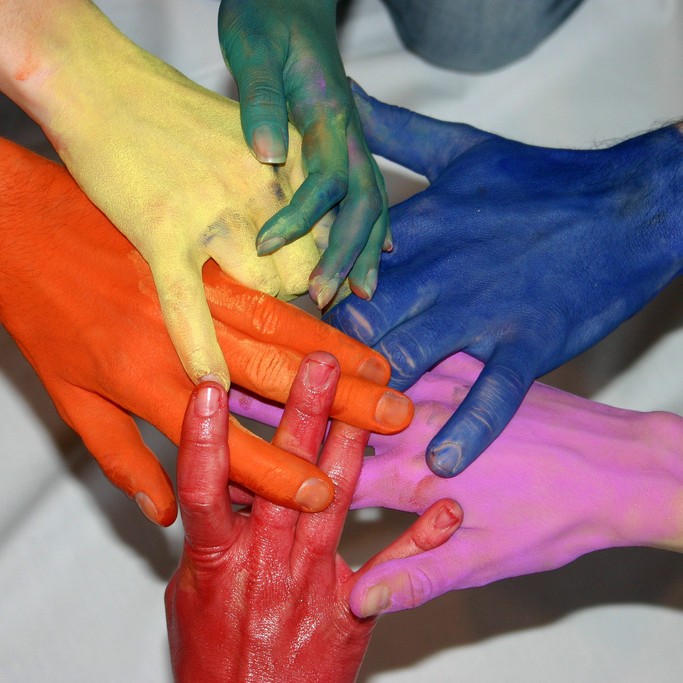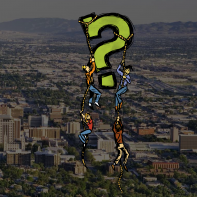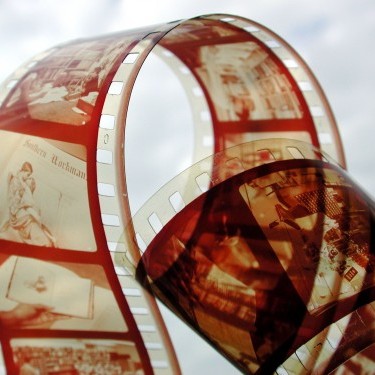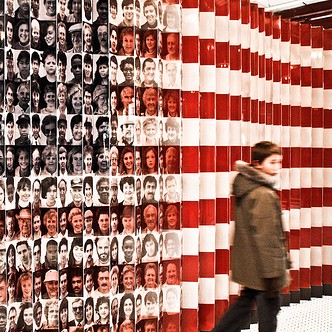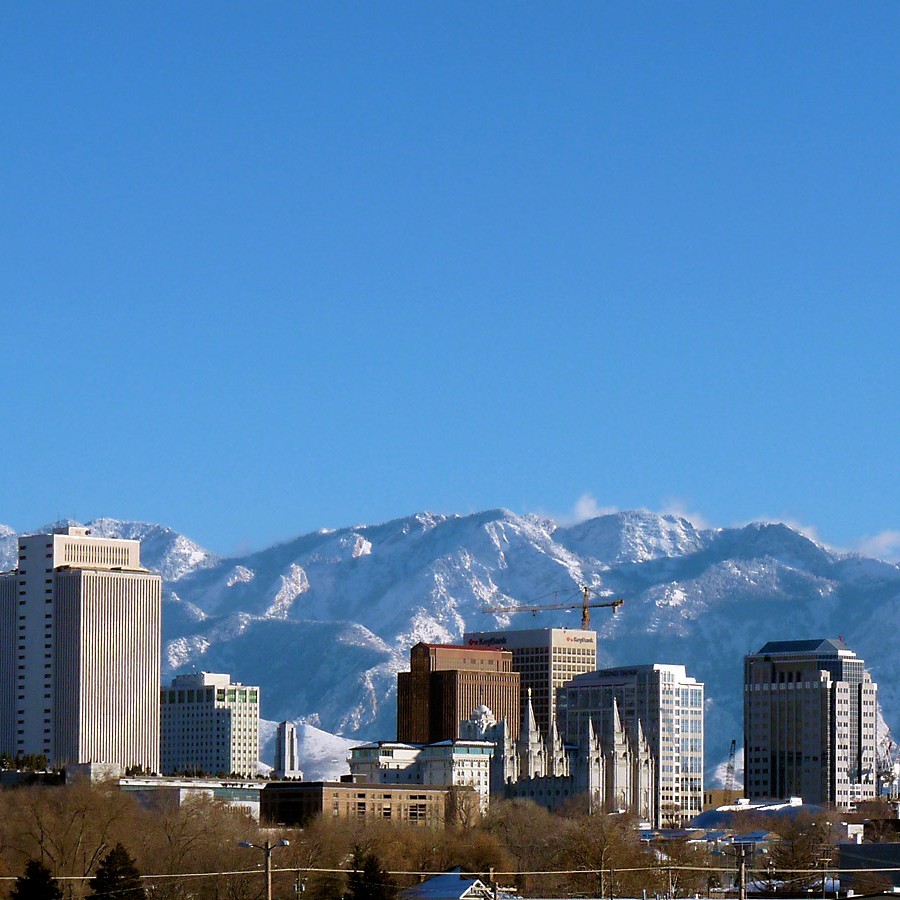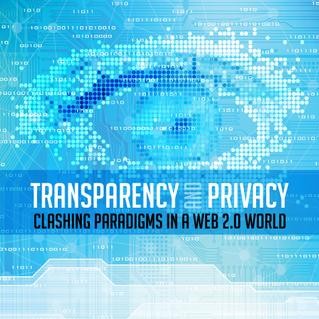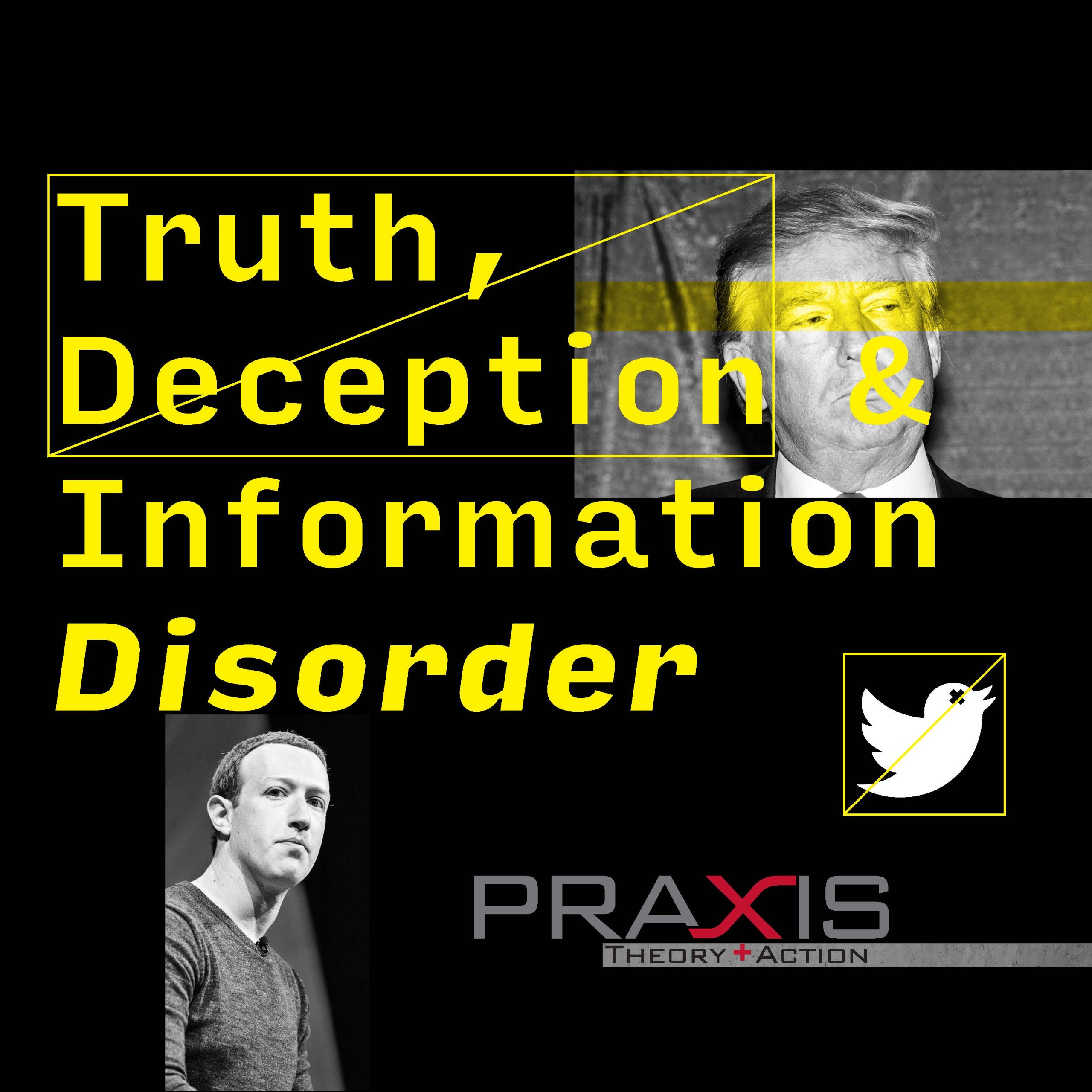PRAXIS LABS
Honors College Praxis Labs draw students from all disciplines to collaborate on innovative project-based solutions to pressing societal challenges. Under the guidance of distinguished faculty and community leaders, you and your colleagues analyze your topic through in-depth classroom and field research such as lectures, panels, one-on-one interviews, readings and off-campus trips. After problems have been identified and solutions developed, you will work together to put your ideas into action in the community. Topics vary each year, but fall under our three focus areas of Health & Society, Energy & Environment and Social Justice.
CURRENT PRAXIS LABS
Equity, Culture, and Preventative Health
AMERICA'S INLAND SEA: IMPACTS OF A SHRINKING GREAT SALT LAKE
Labs will be announced for the 24-25 academic year in Spring of 2024. Labs will be 3 credits in both the fall and spring semester for a total of 6 credits of Honors electives. Come back soon to see lab details
For inquiries: Dominic Pecoraro, Associate Director of Special Programs (D.Pecoraro@Honors.Utah.Edu)
Equity, Culture, and Preventive Health
This local case study looks at health equity and social determinants of health regarding identity and community positionality in preventing diabetes. This praxis lab holistically connects and reviews concepts from nutrition, geography, urban planning, health, kinesiology, and social work in exploring access and assets that influence diabetes prevention and diagnosis. We will explore questions such as: How can community and cultural assets
disrupt systemic health inequity? How do health promotion and disease prevention situate themselves in both systems and selves? How do coexisting discourses on culture and health influence approaches to preventive health?
Meeting Time: Wednesday 4-7 p.m.
Classroom: KV 1324?
Paul Estabrooks – Research Fund
Isabel Teresa Molina-Avella – Research Fund
Adventure, Risk, and Rescue
Ethical Issues in Outdoor Recreation and Wilderness Medicine - Adventures in the wilderness come in many forms: climbing, mountaineering, canyoneering, whitewater rafting, backcountry skiing, scuba diving, and more. But how do we choose acceptable levels of risk when planning such encounters? How do we mitigate the risks we choose? And what decisions do we make when our priorities turn from fun to survival? Moreover, what motives and attitudes guide our own approaches to adventure in the first place? This course will examine the technical, philosophical, social, and medical components of adventures in wilderness environments.
Air Quality, Health and Society
This Praxis Lab taught by an atmospheric scientist and a writer/activist explored the broad issue of air quality through the science, economics, and policies that control the quality of the air we breathe. Air pollution affects everyone, regardless of age, race, education, or class. Poor air quality adversely impacts human health, terrestrial and aquatic ecosystems, visual aesthetics, and even economic vitality. Bad air respects no political boundaries; solutions to these challenging problems require cooperation between individuals, industries, and governments, sometimes on a global scale.
This course began by investigating air quality problems in metropolitan regions. The students learned how air pollutants enter the atmosphere, how they are chemically transformed, how the atmosphere acts to concentrate or disperse these pollutants, and how they are ultimately removed from the atmosphere. A series of guest lecturers, and experts on the health, environmental, and economic impacts of air pollution were presented to the students. Students then examined the roles played by energy use policy, urban planning, politics, and lifestyle choices. In the second semester, students created a class project of their own design, using their new knowledge and contacts to create meaningful outcomes and partnerships for our community.
Link to Full ReportOut of Isolation: Applying the Healing Spirit to the Social Determinants of Mental Health
Many barriers to “good mental health” share a common root cause: social isolation, exclusivity, and mistrust. In this Health Praxis Lab, we will examine the social-ecological context of mental health and well-being, mental health stigma, and the social determinants of mental health. Through experiential and community-engaged learning, we will consider innovations to decrease mental health stigma and identify ways we can work toward a society that prioritizes health, equity, justice, and inclusion for vulnerable populations. Facilitated by a transdisciplinary team of University of Utah faculty and community leaders, students will receive training in self-reflection and relational skills that serve as the critical foundation for interpersonal connection, community development, and systems change. Students interested in the development of altruism and strengths-based mental health systems are encouraged to join us. Let’s contribute to forward-thinking, inclusive paradigms of well-being and mental health.
Aging Well in Utah
The world’s population is aging which has implications across society. Utah, which has the distinction of being the youngest state in the nation, is also seventh in growth of adults 65 years and older. The Age Friendly Movement supports the inclusion of people of all ages to actively participate in the world around them. This Praxis Lab will explore the impact of an aging population through lectures, readings and interactions with older adults and aging services. The Age Friendly Movement will serve as the framework to explore aging topics including healthy aging, health care delivery, community planning, education and sustainability of the workforce and ageism. Emphasis will be placed on the 4M’s of age friendly health systems – mobility, mentation, medications and what matters most – and how social determinants of health and health policies influence where and how people age successfully in Utah.
Addictions: ‘Crack’-ing Open The Myths
Half of all Americans have a friend or family member who is struggling with addiction. In the United States, it is expected that 1 in every 13 people over the age of 12—roughly 20 million people—will meet the criteria for having a drug or alcohol addiction this year. The term “addict” often conjures up negative stereotypes, but the reality is that addiction is not biased in whom it brings into its clutches; doctors, pilots, classmates and community leaders are all potential prey.
In this Praxis Lab, we will deconstruct many of the myths surrounding addiction and explore how such stereotypical notions complicate addiction and recovery efforts. During the first semester, we will address questions like: What is addiction? Is addiction a choice? Do drugs cause addiction? What do drugs really do to our brain? Can addiction be treated? Do people recover? How do we curb the addiction epidemic? We will consider drug and alcohol policy, examine current intervention, treatment, and prevention strategies, consider personal and structural barriers to recovery, and discuss the individual and societal implications of addiction and recovery. By understanding the bio/psycho/social implications and ramifications of addiction we (as individuals and as a society/culture) prepare ourselves to respond in a more socially responsible manner. Empowered by knowledge gained in the first semester, students will develop and implement a project during the course’s second semester to address an addiction-related issue within the local community.
Link to Full ReportDrugs and Us
We live in a world surrounded by drugs: pharmaceuticals that treat serious illnesses; over-the-counter remedies for minor ailments; common-use drugs like caffeine, nicotine, and alcohol that we use for pleasure; religious-use drugs like peyote and ayahuasca; sports-enhancement drugs that are banned in competition but are nevertheless in widespread use; and of course illegal street, club, and party drugs–drugs that provide a wide range of altered experience but sometimes also kill.
Students in this Praxis Lab will address issues in drug classification, drug policy, drug regulation, and practical measures for dealing with drugs of all sorts. The Praxis Lab will take into account historical reasons for drug classification; cultural and religious factors; and drugs in specific contexts like execution imposed within the criminal justice system. It will consider performance enhancing drugs, used in a vast range of contexts from the musical concert to the long-haul military flight; it will seek to decipher complex issues around addiction; it will look at institutions like various 12-step programs; and it will consider seemingly everyday issues about matters like pain and pain relief and the use of hallucinogens for everything from religious experience to palliative care. It will attend to drug pricing in medicine and drug supply on the street. This broad sweep of topics will form the background for the project to be developed during the second semester of this Praxis Lab.
Link to Full ReportBeginning of Life
Even before conception, a potential human life takes shape—in the hopeful parents’ expectations and fears and within the cells of their gametes. Biological, psychological, and cultural factors combine to charge this moment with great promise, for both the individual and society. Yet, it is also freighted with uncertainty: When does human life begin, and how do we know? Should we sequence an embryo’s genome? And, if we do, should we intervene, based on the genetic information we gain? How does our growing knowledge of epigenetics inform how we conduct ourselves as fathers-to be, pregnant women, and mothers? And when a baby is born with a severe anomaly, how do we gauge its quality of life and its impact upon parents, siblings, and the community?
This Praxis Lab will address those questions and examine the scientific and cultural roots of human hopes and fears from before conception through the early days of life, as well as the profound decisions that we make on behalf of potential, unborn, and newborn children. During the first semester, we will consider how social norms, scientific knowledge, and life history all intersect, developing a complex and historically sensitive perspective on this critical period. In the second semester, we will intervene in the real world, bringing our nuanced perspective to bear on the clinic, the public sphere, the neonatal nursery, or another context where decisions about the beginning of life must be made.
Link to Full ReportLocal Food and Human Diets
Our species evolved in the context of foraging for local food as hunters and gatherers. Today, eating local carries different connotations, often associated with being environmentally conscious, health oriented and globally minded. But is local food a sustainable reality? With our dietary requirements and current population densities, can we reliably source food locally? Why have we found ourselves in this troubled place? This course explores the relationships between local food, human diets and cultural formations.
We will investigate how our omnivorous diets evolved out of foraging for wild resources; the ways in which our ancestors modified environments to domesticate plants and animals; the dynamic interactions between culture(s), industrialized agriculture, urbanization and human population growth; the growing acknowledgment of environmental and social responsibility to eat local; and the attempts to commercialize and co-opt local food movements.
How We Die
We no longer die primarily of infectious and parasitic disease, as was true worldwide up through about the middle of the 19th century and is still true in some parts of the developing world; now the great majority of people in the developed world die slow deaths of degenerative diseases typically diagnosed long in advance and exhibiting long downhill courses—cancer, heart and other types of organ failure, the dementias.
This is how we die. But is it how we wish our dying to go, either for ourselves or for those we love? Current political ferment over end-of-life medical practice and right-to-die legislation is exploding into the public arena: it is these issues we wish to explore and, in doing so, construct more sensitive and effective ways of responding to them.
We will consider the background epidemiology of how we die, including developed and developing-world mortality patterns; strategies for “negotiating” death; palliative care and terminal sedation; and physician-assisted dying, called death with dignity. What mechanisms are available to protect patients’ wishes about how they die? What about media portrayals of death and dying—what role do these play in how we think about death? What about gender, age, racial and economic disparities? What about the costs of health care? How do beliefs about the value of life and the possibility of immortality play a role in how we die?
Opening the Mind’s Eye
A growing body of neuroscientific research confirms that contemplative practices, such as meditation and traditional yoga, have measurably positive effects on memory, attention, and empathy. Many American universities, medical schools, and research institutes have begun to incorporate forms of contemplative practice into their programs. As American society struggles with painful internal polarization and world conflicts proliferate, students and faculty alike hunger for a compassionate education of the “whole person” aimed toward making a positive impact locally and globally.
In this Praxis Lab, students will explore and experience contemplative practices from around the world and throughout history—from the ancient to the modern, from the spiritual to the secular, from the visionary to the embodied—and consider these practices’ potential for interacting with, and deepening, university education. Students will learn hands-on practices from numerous secular and spiritual traditions. The course will also present the latest medical and scientific research on meditation, and students will explore the growing use of contemplative practices in universities around the country.
Students in this Praxis Lab will then conceive and implement collaborative and innovative class projects that apply these practices to the University of Utah. Some of the areas the students’ project(s) may impact could possibly include classroom applications, program development, campus wellness, mental health, and more.
Together, we will work to “open the mind’s eye”—to unlock the mind and heart’s potential for our full humanness.
Link to Full ReportGender, Health & Human Rights: More Than a Woman’s Issue?
We will grapple with some of the following questions: What defines ‘human rights’ and ‘health’? Do, and should, these definitions vary across place and time? How is health gendered? In what ways do human rights influence health? Are the issues that have garnered the most attention in the fields of human rights and women’s health really the most pressing issues? To what extent does heterosexism shape our understandings of human rights and health? How does women’s health relate to the health of other populations or the population more broadly? We will explore the role of national and international institutions, such as federal governments and the World Health Organization that address the link between gender, health and human rights.
In the second semester, we explore how these “global” issues are reflected in our own community. Students will identify key issues at the local level that exemplify the complex link between gender, health and human rights. As a group, students will apply their evolving knowledge to design and complete a class project that aims to effect change at the community level. Students will then develop a report that will be distributed to interested parties such as community members, health care providers, non-profit organizations and local policy-makers.
Link to Full ReportRedefining Health and Wellness
Too many times, ‘being healthy’ is perceived as restrictive and boring rather than a positive set of behaviors that enhance quality of life. For example, Mark Twain said: “The only way to keep your health is to eat what you don’t want, drink what you don’t like, and do what you’d rather not.” In this course, we will challenge that way of thinking: What can we do to make healthful choices easy and enjoyable?
Looking at health and wellness in a broad sense, we will explore the seven dimensions of health: social, emotional, spiritual, environmental, occupational, intellectual, and physical. We begin by examining how each of the dimensions of health are defined and valued by individuals and communities. We will then think about how health habits are learned and explore the broad influences on individual and community health, like families, peers/colleagues, schools, workplaces, healthcare facilities, advertising and government policies. We will hear from presenters who approach health and wellness from many angles including nutrition, obesity prevention, exercise, recreation, body image, mental health, cross-cultural health, transportation, economics, health disparities, occupation and disability.
The second half of the course will focus on student projects. Students will work in groups to create meaningful, community-based projects like programs to provide healthful foods across campus, innovative methods for teaching health and wellness in schools and ways to improve the use of public transportation.
Link to Full ReportCreativity on Center Stage
Albert Einstein once said, “If you want your children to be intelligent, read them fairy tales. If you want them to be more intelligent, read them more fairy tales.” Einstein thought that formal education ignored and suppressed creativity. The “arts” are increasingly walled off in their own perennially underfunded or unfunded domains. At the same time, many classrooms, offices, and laboratories foster an atmosphere that denigrates collaboration and selflessness, and achievement is too often understood as springing not from love of productive and thoughtful work but from narrow personal ambition and fear of failure. This Praxis Lab addresses what might be done to put creativity at center stage in classrooms, communities, and individual lives.
The course begins by examining and encouraging certain thinking habits associated with creative people across disciplines, like risk-taking, reasoning in the absence of clear answers, and honoring emotions. Why are such habits undervalued by most educational systems? Can those habits be taught and honed? The course addresses these questions through presentations by people involved in the arts and education and through “innovative exercises” (art works, writing, performances, etc.). The second half of the course concerns student projects, which take varied forms from creative performances to new pedagogical methods or means of support for arts education.
Alzheimer’s and Aging
This Praxis Lab is designed to link our current scientific understanding of Alzheimer’s disease with social and public policy issues facing patients, families, and society at large. The course will concentrate on knowledge, communication, inclusion, and dignity by studying the intersections of science, philosophy, emotion, ethics, and public policy. It will ask students to consider these questions: What does it mean to be old in America? To be dependent? To have Alzheimer’s Disease? What do you think your community needs to know about the disease? How will you communicate what you have discovered?
Participating students will develop a basic scientific understanding of Alzheimer’s disease and will explore the medical, ethical, philosophical, and public policy issues that accompany it. They will be able to apply their own interests and expertise to address this emerging problem. Students will recognize how the humanities inform the medical and scientific and also how the medical and scientific approach to disease is inadequate and must draw upon the social sciences and public policy to be fully successful and be informed by the humanities to best understand the ramification of disease. At the end of this course, students will better understand how society chooses to frame disease can affect policy, knowledge and stigma.
Link to Full ReportThe Uneasy Intersection of Law and Medicine
Religious Divide
Quality of Life
Bioethics
Behaving Like Animals
America’s Inland Sea: Impacts of a Shrinking Great Salt Lake
In 2022, the New York Times characterized the Great Salt Lake as an “environmental nuclear bomb,” but is that an accurate description of the lake and its challenges? This Praxis Lab will provide students with foundational knowledge of the geology, geography, and ecology of the lake, as well as relevant human and non-human factors and processes that impact this complex system. We will hear from experts: scientists, legislators, business leaders and landowners as well as social scientists, writers, visual artists, and activists who together are invested in the future of this economically and culturally important ecosystem. Field trips and at least one over-night camping trip are part of this course. Students from all majors interested in studying and contributing to a local environmental issue are encouraged to enroll for Fall 2024 + Spring 2025!
Tuesdays 4-7pm
Faculty:
Dr. Kevin Perry, Professor of Atmospheric Sciences, member of the Great Salt Lake Strike Team and “Dust Doctor” (aka preeminent expert on “lake dust”).
Dr. Sylvia Torti, Presidential Honors Professor, Ecologist and Creative Writer
Sponsored by the Honors College and the Wilkes Center for Climate Science & Policy, College of Science
Responsible AI
In the past few years, we have witnessed both a stunning acceleration of artificial intelligence (AI) innovation and a suite of terrifying AI blunders. From racist predictive sentencing software to sexist automated resume processing, and from recommendation algorithms that radicalize us to feeds that distract us, it is clear that AI has had more than its fair share of unintended consequences. This course will investigate current AI failures in the domains of bias and discrimination, radicalization and polarization, privacy and surveillance, environmental sustainability, and labor. Through readings, discussions, case-studies, guest lectures, playing with code, and field trips we will engage deeply with questions about the ethics, unintended consequences, and potential futures of AI. We will ask what kinds of processes, questions, and safeguards could have prevented the worst consequences of prominent AI mistakes and also seek inspiration from ongoing efforts to encourage more responsible AI. The goal of this course is to equip students with sociotechnical and critical skills to think through the human consequences of decisions made in the creation and deployment of AI. In the end we will employ these critical and technical skills in a real-world project that will help foster responsible AI in our own communities.
Climate Change: Science, Stakeholders and Social Investment
This opportunity is first-come, first-serve – to join, please enroll in HONOR 3700 – 003, Class number 18694 for Fall 2022, We/3-6PM, KV1324
This Praxis Lab will consider the complicated intersections between global climate change and financial markets. Increasingly, the financial industry is being asked to incorporate climate metrics into their research programs. Questions we will address include:
- How might the financial industry incorporate climate metrics into its research processes?
- How should financial advisors advise clients interested in the social impact of investments?
- Who is responsible: government, regulations, free markets? What happens when global leaders (USA, EU, India, China) disagree on who should bear responsibility?
- Should financial firms pay attention to ESG (Environmental, Social, Governance) or should they simply invest the money and provide the largest returns to their clients (and let clients decide how to spend that money)?
- Are we really prepared to handle net-zero (what’s the technology needed to transition?) and who are the players that will benefit (who should they invest in?)
Dr. Jeffrey Coles: Samuel S. Stewart, Jr. Presidential Chair in Business David Eccles Chair & Professor of Finance
Globalization and inequality: Precarious lives in Utah
The concurring trends of deepening globalization and increasing inequality permeate all aspects of our lives. Globalization has enabled unparalleled technological advances and economic growth. At the same time, inequality has increased dramatically. Our societies are polarized: the super-rich co-exist with a well-to-do professional class, and the rest struggle in the Neverland of big box stores and the gig economy. Many jobs do not provide a living wage or good benefits, and ever more people lead precarious lives: teetering on the edge of poverty in weakening communities with fragmented identities.
This Praxis Lab challenges students to connect the broad and all-encompassing trends of deepening globalization and rising inequality to two local constituencies: immigrants in the Salt Lake Valley and poor white Utahans beyond it. The many differences between these two groups – with respect to race, class, geography, legal status, and political party affiliation– will allow us to examine the complex interactions between socio-economic and technological changes on the one hand, and the “populist” and nationalist upheavals of our time on the other. How does the global economy shape the everyday lives of these two groups, and how do those experiences shape their political orientations?
Fueling Up
The demand for energy is central to civilization on Earth, supporting economic growth and societal innovation, while contributing to civil unrest and environmental degradation. This Praxis Lab will provide an interdisciplinary venue to explore the science, engineering, policy, environmental consequences, economics, and sociopolitical complexities of energy systems. Students will study all available and emerging energy resources and technologies, including those present in the state of Utah. They will analyze the complex nature of energy systems, while considering the links between geoscience, engineering, ecosystems, and socioeconomic systems. They will examine the tradeoffs between social and environmental demands, the connections between production and consumption, and questions related to path dependency, efficiency, inequality, and built environments. Students will compare and contrast the life cycle variations of different energy options, the land use requirements of each energy resource, and the societal impacts of the usage of various energy sources. This analysis is rooted in a data-driven understanding of energy systems. Students will also situate their own behavior and choices within these complex, global-scale energy systems.
Link to Full ReportThe Valley as Laboratory: Steps Toward a Restorative Urbanism
Our mountains, emerging circulation systems (transit and bicycle), community self-esteem and relatively strong economy are among the strengths and signs of the good health of our city. But how can we make an impact now to ensure a healthy future? Using physiology as a metaphor for understanding the way our city works, we’ll work together to diagnose problems and develop treatments that restore health and vitality to places we care about – think urban acupuncture and urban metabolism! Beginning with an exploration of the complex, interrelated environmental, social and economic systems that form our cities, we will build upon the strengths of our own city to promote a healthy urban ecology. This Praxis Lab builds upon the success of a previous Praxis Lab named, “The Campus as Laboratory” in which students’ ideas led to tangible outcomes including the food trucks we now enjoy on the Marriott Plaza.
Valley as a Laboratory Final Report Links
Link to Full ReportEnvironmental Health
Ecosystem Services and The American Dream
Wasatch Water: Evaporating Opportunities. This Praxis Lab will explore the notions of ecosystem services and the American dream with a special focus on water resources along the Wasatch Front. Students will follow water as it flows from its original state (free and clean) as snow, through our urban landscape and out to the Great Salt Lake or Jordan River. How does the value of water change through this landscape? How does its quality change? What has new research in science, engineering, economics, psychology and aesthetics taught us about the value of ecosystem services? How does this new research affect modern notions of the American Dream and our roles as individuals within our societies and ecosystems? What happens when ecosystem services—“products” such as clean drinking water, decomposition and nutrient recycling and pollination of crop plants, provided by nature at no cost to society—and the American Dream—the notion that life can and should be richer and fuller for every subsequent generation—are brought together? Early conceptualization of The American Dream, though not put in terms of “ecosystem services” was inherently predicated on the notion that these services were free, infinite and invulnerable. We now know that they are not, but where does that leave us? This broad sweep of topics will form the background for the project to be developed during the second semester of this Praxis Lab.
Link to Full ReportCanyonlands Competition
Canyonlands National Park surrounds the confluence of the Green and Colorado rivers in southeast Utah. Established in 1964, the park’s original boundaries were drawn arbitrarily, the result of political compromises dictated by the concerns of the day. Ever since, conservationists have hoped to “complete” the park as originally conceived by incorporating the full ecological and erosional basin below the high rims of adjoining mesas. This completion proposal primarily involves the re-designation of federal lands already held by the National Park Service, the Bureau of Land Management, and the Forest Service.
In 2008-2009, nine students interviewed residents and officials from San Juan and Grand counties as well as federal land managers and scientists. We heard from diverse experts and stakeholders and conducted extensive background research.
We concluded that a key problem lies in systemic conflicts inherent between competing federal land agencies that have opposing legal mandates and quite different land management objectives. We recommend a new interagency coordination policy designed to reduce the conflicts that arise whenever two agencies share a border. Given the ongoing border conflicts in the Canyonlands region, we also proposed new models for collaboration and the creation of a new Canyonlands National Preserve. This approach to “completing” Canyonlands would help ensure the park’s integrity while also allowing for dialogue and flexibility in making future management decisions.
Link to Full ReportAnthropocene Now: Utah Snow, Climate Change & Social Resilience
Climate change is an urgent environmental challenge for the coming decades, and many of the expected impacts in Utah relate to snow. At the same time, Utah’s population surges, climate change is predicted to alter the Wasatch Front’s patterns of snowfall and melt, with implications for recreation and water resources. How is this local case a model for global climate transformation? How can Utah communities model resilience for communities in Europe, Asia and South America? What can Utah learn from the changing snowpacks in the Himalayas, Alps and Andes? Past discussions of climate change have pushed impacts out to the year 2100 and beyond – snow shows climate change is affecting Utah now.
This Praxis Lab will look closely at the idea of the Anthropocene, at the concept of Resilience, and at the science and politics of climate change. This group will focus on local snowfall’s economic, social and wildlife consequences. Our Praxis Lab will develop a participatory research project to share our conclusions and influence public policy and perception in our community.
Link to Full ReportAUTOMATION
One of the national fast-food chains in the U.S. recently announced the replacement of cashiers in 2500 locations with digital ordering kiosks. This “Experience the Future” initiative will also deploy mobile ordering at 14,000 locations. AI experts predict that by 2027 truck drivers will be redundant, AI will surpass human capabilities in retail by 2031, best-sellers will be written by AI in 2049, and surgeons will be replaced by 2053. In the next 100 years, all human jobs will be replaced by automation.
These predictions are in contrast to today’s realities of automation: While low-level automation found wide adoption, more complex systems used in professional contexts or in consumer products either require extensive training for their operation or are taken up only by small groups of early adopters. High complexity automation systems that are currently available are even more challenging in terms of the parameters of their use, user training requirements and user adherence to the conditions of safe operation. Many systems that are available today are at the edge of what is technologically possible, but often engineers do not consider what is socially desirable. Thus, while automation will reshape and restructure society, it is today that we will need to understand how to develop human-centered automation.
The goal of this Praxis Lab is to explore how automation may affect society, from a wide range of perspectives. After developing a basic understanding of the potential impact of automation, students will pursue a project on automation in contexts local to the Salt Lake Valley.
Link to Full ReportLegacies of the American/Vietnam War from Diverse Perspectives
From the origins of PTSD, to the Vietnam Veterans Memorial in Washington DC, and the vivid images of anti-war protest, the legacies of the American War in Vietnam are deeply etched upon American Society. They are even more deeply etched upon Vietnamese society, which experienced upwards of two million casualties, where all families have witnessed wartime loss, where unexploded ordinance and agent orange still scar the landscape and cause illness and injury and where resilience. Furthermore, the experiences of Vietnamese Americans capture the experience of flight, loss of homeland, resettlement challenges, and identity formation in the wake of war. War, and the “Vietnam War,” or “American War” in Vietnam, in particular, is transformative & its transformations warrant close, critical study.
In this course, students will engage with research, literature, film and other art forms, as well as scholars across many disciplines, to arrive at an understanding of war’s transformative effects upon our lives, the lives of civilians and combatants, and upon communities and societies writ large. Particular attention will be focused upon oral history, among other methods, as a means of documenting war’s persistent influences upon health, identity, landscape, memory, family, and relationships. The co-instructor team will bring diverse research, film, music, and guest speakers to the course to enrich and deepen perspectives on war’s legacies.
This Praxis Lab will also feature a unique opportunity for international learning and exchange with student peers in Vietnam. Using a Collaborative Online International Learning (COIL) approach, students will learn together and create collaborative projects together with students enrolled in a partner course at Fulbright University in Saigon, Vietnam. Through this approach, students will gain unique insights into the ways that war’s legacies carry on across “multiple sides” of conflict, and they will gain experience and skills in cross-cultural communication and team work. Last but not least, there will be a Fall break class trip to Vietnam to visit places and meet people affected by war, and to work face-to-face with students at Fulbright University.
Black Perspectives from Theory to Praxis
This course aims to introduce students to a range of black perspectives on some of the most pressing issues of our time. By black perspectives we do not mean perspectives based solely on identity or community belonging, though many of the authors we will consider identify as black. Rather, we will consider how black history, narratives of black cultural difference, persisting social inequalities, black movements for social justice, and the everyday experiences of black people have shaped, countered, and sometimes transformed mainstream ideologies about issues such as policing and incarceration, education, climate issues, reproductive rights, science and technology, political economy, healthcare, government and politics, among other issues. Conversely, we aim to demonstrate how varying perspectives within black communities have transformed the meaning of blackness.
College Affordability
Final Report
Link to Full ReportFamily Violence Across the Life Course: Child, Partner and Elder Abuse
Family violence exists with varying severity throughout the life course in the form of abuse, exploitation and neglect of vulnerable groups, such as infants, children, intimate partners, disabled persons and elder adults. In this course, we explore ethical and scientific controversies, theoretical perspectives, empirical research, and efforts to detect and curb the staggering economic, physical and psychological costs and consequences of abuse.
Abuse is a difficult reality, so understanding the network of professionals intervening in cases of exposed family violence is important, along with the resources available to protect survivors and prevent future harm. Public health campaigns, victim’s rights, criminal justice solutions and legislative initiatives are compared with the purpose of improving the quality of life for generations of families in Utah, the US and internationally.
This Praxis Lab will examine multiple viewpoints and experiences of family violence, including victims, perpetrators, witnesses, and community professionals working with those affected. A diverse methodology will inspire learning with readings across disciplines, guest speakers, site visits, international films, and video clips. In the second semester students will present their projects born from a synthesis of our discussions, readings and experiences to create a meaningful product, legislative contribution or intervention in our community.
Link to Full ReportRefugee Resettlement in the U.S.: Contextualizing the Odyssey of New Americans
Refugee resettlement is a current political topic in the news and everyday discussions, but even so, it is not well understood by the general public. Students interested in social justice, human rights, gender issues, and refugee resettlement in high income countries will develop a more thorough understanding about what it means to be a refugee in the current political climate, as well as what it means to be resettled outside of one’s home and familiar country. Additionally, students will develop an understanding of why “integration” is a key concept in working with individuals and families who are newly arriving Americans.
The overall purpose of the Praxis Lab is to create a frame for advocacy work that will last a lifetime. Students will work through the 10 indicators of integration (Agar & Strang, 2004) to create a composite sketch of why these indicators are important and what they say about U.S. society in the 21st Century. Service providers from Catholic Community Services, the International Rescue Committee, the Office of Refugee Services, the Refugee-Immigrant Center—Asian Association of Utah, and Women of the World will be invited as guest speakers. We will consider various methods for community-based participatory research and project development as we plan and implement a project spring semester.
Worlds Apart: Assessing Utah’s Urban-Rule Divide
The 2016 election put into sharp contrast the political and social divisions that exist between rural and urban areas in this country. Even here in Utah, we see marked social, political, and policy divergence between areas of urban growth like Salt Lake and Utah counties, and rural areas of the state that are struggling to keep jobs and families in their communities.
Understanding the nature of this divide and determining what can be done to bridge the gap is ultimately the challenge for participants in this Praxis Lab. The first semester will begin with an investigation of the extent of the urban-rural divide. We will explore, among other things, the differences and similarities between living and working Utah’s capital city and in rural Utah. This exploration will set the stage for the second semester, when students will identify aspects of this complex area of problems and policies they want to focus on and develop relevant and realistic proposals for how governments and nonprofits might address these issues. Once identified, students will develop their ideas to help bridge the divide between urban and rural Utah.
Link to Full ReportGrassroots Community Leadership
How do we get people to get involved in their communities? The question is asked more and more frequently amidst theories about the decline of civic participation in U.S. society and the increase of the ‘bowling alone’ phenomenon, and as it becomes clear how challenging it can be to create meaningful roles for everyday people in making important decisions about their communities—whether neighborhood, city, state, or country. This Praxis Lab takes a unique approach to the question of how to encourage grassroots community leadership: students will work side by side with residents of the west side of Salt Lake City who are participating in the Westside Leadership Institute (WLI). The WLI is a partnership supported by University Neighborhood Partners (UNP) that takes an innovative approach to encouraging residents of all different backgrounds (cultural, political, socio-economic, and educational) to become catalysts for positive change in their communities. By working on ‘on-the-ground’ community problems with the WLI participants, students will investigate questions such as: What does it mean to be a community leader? How do leaders mobilize residents to make progress on tough community issues? How do leaders work across cultural differences to address adaptive challenges? What process management tools make a difference when engaging residents in community work? These questions will be answered while collaborating on a community project with real impact.
Link to Full ReportQueer Identity and Social Structure
This Praxis Lab will address three central questions. What is queer? What is activism? What is social justice? Each question has countless answers, and students will formulate their own (non)answers to these questions, read about how others do (not) answer them, and learn from community activists who grapple with these questions in their daily lives and work. This investigation will allow students to deconstruct their own identities as well as the ways these identities are shaped by local and national politics, cultures, ideologies, discourses, mediated representations, and institutional and individual practices.
By the end of the first semester, students will be adept at using a newly formed academic lens to examine identity and social justice issues. The class will consider and critique historical and contemporary attempts by activists and institutions to find middle ground on issues faced by those in the LGBT community. In the second semester, we will develop our voice and place in this contemporary landscape by implementing our own brand of strategic outreach. By the end of the year, Praxis Lab participants will have examined and reshaped their self-identities, strengthened community networks, and implemented an innovative strategy to raise awareness, promote inclusion and reduce discrimination.
Link to Full ReportMiddle Class on the Ropes
This Praxis Lab will integrate the demographic, economic, historical, and even cultural dimensions of the content and growth of inequality in the United States. The course will explore the consequences of income inequality and the ways it affects the bottom line for individuals and families and their engagement in politics and other social processes. It will also examine the ways that students are directly affected by growing inequality with respect to their own economic prospects and their growing debt burden. The seriousness of income inequality today begs for solutions, and students will utilize an interdisciplinary approach to analyzing the most current data, exploring policy implications, and examining the viability of a multitude of possible solutions to this urgent social problem.
Link to Full ReportFilm and Diversity
What makes a good documentary? How can film, as a medium, give a voice to marginalized and oppressed communities? In this Praxis Lab, students learned the fundamentals of analyzing and creating documentary films. Working in small teams to create documentaries that investigated topics relevant to diversity in Utah, students learned the basics of good filmmaking—cinematography, interviewing skills, lighting, scripts, editing, and logging. Putting these new-found skills to use, students collaborated with members of the Salt Lake City community to create films about a variety of topics like autism, domestic violence, downwinders, art and activism, eating disorders, and Ruby Chacon.
Link to Full ReportSupporting New American Communities in Utah
For decades, the Salt Lake City area has been a U.S refugee resettlement site and destination for economic migrants. Over 17,000 refugees have been resettled in Utah and approximately 1,000 new individuals come each year. The needs and strengths of communities from immigrant and refugee backgrounds are multifaceted. As newcomers in the community many residents have limited communication skills, social systems knowledge, and cultural capital necessary to build their lives in their new home. Simultaneously, these New Americans bring rich histories, diverse perspective and multicultural knowledge and skills to Utah.
As an outgrowth of the university-community partnership work done by the University Neighborhood Partners and the Bennion Center, this Think Tank will provide students and partners with an engaged learning experience while delving into the complexities and assets of emerging New American communities and integration pathways. Participants will explore questions of culture and community that provide a context for understanding integration as a two-way process in which both the newcomers and the host societies are changed.
Within an action-scholar framework, students and community partners will work together to design and implement community-engaged projects.
Link to Full ReportImmigration
Wind the clock back far enough and all of our families were immigrants. Integrating immigrants is far from easy; ask the Goshutes in Utah or the Irish in Boston. This moment seems to be particularly difficult because of the increasing numbers of immigrants, because the immigrants are predominantly poor, and because many of them have evaded restrictions on immigration in America.
During this Praxis Lab, Honors students sought to understand the immigration dilemma and to help inform the debate in Utah. The students researched history, legislation, economic impacts, the media, and the process of becoming a legal resident of the United States. They travelled to Mexico and spent a week immersed in communities that are struggling with immigration-related challenges on the other side of the border. English major Anna Thompson considered herself euro-centric prior to their visit: “The trip was not only a defining moment in my collegiate career, but also an eye-opening experience in terms of my world view,” she said. “Now the debate is painfully real and sometimes painfully personal.”
As a final project, the team published “Immigration in Context: A Resource Guide for Utah.” Disseminated to policy makers, legislators, educators, community organizations and citizens, the guide presents an unbiased view of immigration, focusing on facts while presenting the human side of the issue.
Link to Full ReportRevitalizing Downtown
The first Honors Praxis Lab convened at Ensign Peak in the fall of 2004 to explore and assess the nature of urban America, through exploration of Salt Lake’s downtown in particular. This group of 14 Honors students and two faculty advisors selected a two-block area located between 500 and 600 West and 200 and 300 South as the focus of their community-based research.
The students created subcommittees to become experts in history, diversity, housing and business issues. They created a brief documentary film capturing personal interviews with residents of the area. They created relationships with relevant downtown agencies including the Salt Lake Chamber of Commerce, Envision Utah, the Downtown Alliance, the Salt Lake City Mayor’s Office, the RDA, and the LDS Church. The team received expert advice and varying perspectives on the problems facing Salt Lake City from these public partners.
Link to Full ReportTransparency & Privacy
Government corruption and abuses of power, scandals in the real estate and financial industries, unpopular wars, skyrocketing costs of education, and an increasingly complex and opaque healthcare system have spurred calls for greater transparency in our institutions and in society in general.
The unprecedented transparency in our society has been fueled and enabled by social media communications platforms like Facebook, YouTube, Twitter, and Wikipedia. At the same time, there is concomitant concern about an unprecedented lack of individual and institutional privacy.
This Praxis Lab took a critical look at these two often-conflicting paradigms. Students studied the origins, underlying rationales and growth of the concepts of privacy and transparency. They also studied their legal and constitutional implications, both in general and in their application in specific areas such as the government, media, education system, financial industry, and the Internet.
During the first semester students heard from leading local and national experts in the areas of openness and privacy to gain a comprehensive understanding of the complexities, nuances and challenges of balancing and reconciling these two competing interests. During the second semester, students applied this information and knowledge by developing two practical projects which have an impact and life beyond the classroom.
Link to Full ReportTransparency & Privacy
Government corruption and abuses of power, scandals in the real estate and financial industries, unpopular wars, skyrocketing costs of education, and an increasingly complex and opaque healthcare system have spurred calls for greater transparency in our institutions and in society in general.
The unprecedented transparency in our society has been fueled and enabled by social media communications platforms like Facebook, YouTube, Twitter, and Wikipedia. At the same time, there is concomitant concern about an unprecedented lack of individual and institutional privacy.
This Praxis Lab took a critical look at these two often-conflicting paradigms. Students studied the origins, underlying rationales and growth of the concepts of privacy and transparency. They also studied their legal and constitutional implications, both in general and in their application in specific areas such as the government, media, education system, financial industry, and the Internet.
During the first semester students heard from leading local and national experts in the areas of openness and privacy to gain a comprehensive understanding of the complexities, nuances and challenges of balancing and reconciling these two competing interests. During the second semester, students applied this information and knowledge by developing two practical projects which have an impact and life beyond the classroom.
Link to Full ReportTruth, Deception And Information Disorder
Are we witnessing a war on truth, and is the line between what is true and what is false increasingly difficult to ascertain? Is truth losing its currency in today’s super saturated information age, where we are inundated with fake news and manipulated by propaganda? Are neutral gate-keepers of truth a thing of the past?
What is “Truth”? Is truth an absolute and universally accepted concept? Or is truth, like beauty, in the eye of the beholder? In our increasingly complex world, are answers to the question, “Is it true” no longer binary propositions? Does establishing legal truth in a court of law necessarily comport with factual truth in the court of public opinion?
What about the role of technology? Technology has become an effective tool to amplify certain voices that obfuscate the truth. For example, in the Philippines, President Rodrigo Duterte has used the platform to spread false information about critics of his drug war. Can Facebook, Twitter and other social platforms find a constitutionally acceptable way of preventing purveyors of lies and propaganda from abusing their platforms?
This Praxis Lab explored questions that go to the fundamental concept of truth. Students examined the historical underpinnings of truth, defined the essence of the concept, identified the corrosive influences and tools being employed in the war on truth—white lies, hyperbole, political rhetoric, fear mongering and disguised communications—and considered the potential implications for our democracy.
Link to Full Report

